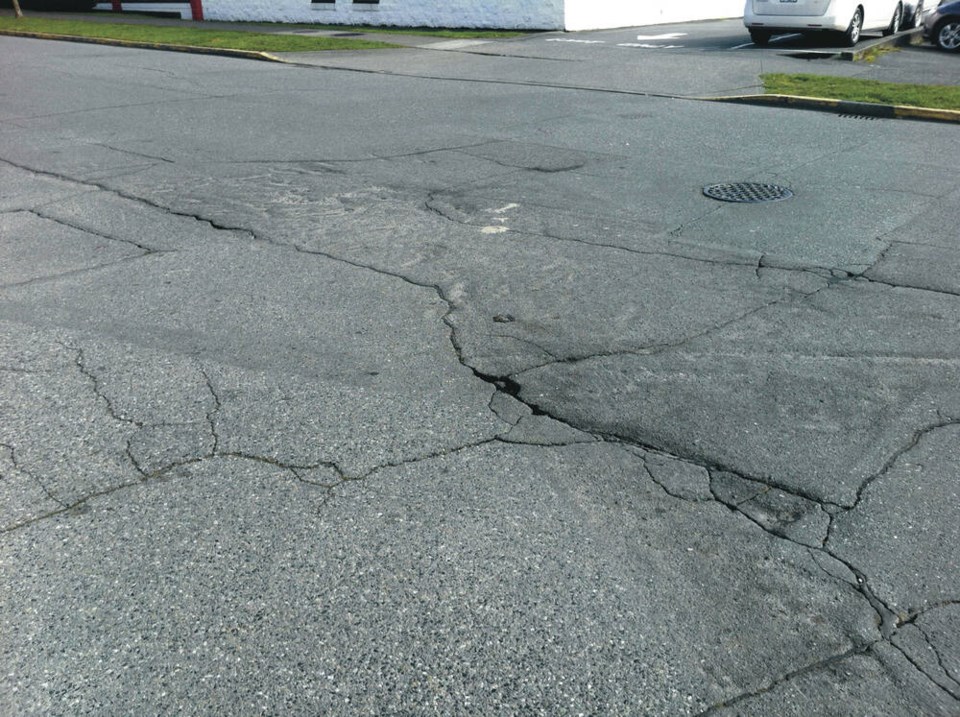A commentary by the CEO of Trelawny Consulting Group Ltd.
Victoria is to be lauded for optimizing road maintenance work with its automated pothole hunter. (“With streets under heavy assault, Victoria rolls out automated pothole hunter,” March 7.)
Especially since the situation will get worse before there is relief. Please let me explain a few developments.
Deterioration of road surfaces is caused, yes, by frost heaves and such, but mostly by wear and tear of vehicles. So increased mileage and heavier vehicles will raise maintenance costs.
These factors will also increase pollution (notably tire and brake particulates), which has its own costs (for human and ecosystem health impacts).
Consider EVs. Of course, we must transition off fossil fuels as rapidly as possible, no sane person questions that.
Yet there are challenges ahead — studies are showing that when a driver switches from an internal combustion engine (ICE) vehicle to owning an EV, that person drives more kilometres per month than before.
EVs also weigh considerably more: an EV pickup weighs as much as an ICE pickup with a grand piano in the back, plus the pianist.
How about remote work? Well, that only applies to workers who don’t need to be on the job in person, and — oops — studies show remote workers on average drive more distance per month than when they commuted. Jeez, seems we can’t win, eh?
Fortunately, there are solutions. The B.C. Government’s Clean Transportation Action Plan has wisely set a target to reduce vehicle-kilometres-travelled (VKT) by 25 per cent by 2030, while boosting mode share of biking, walking and transit by 30 per cent. Less vehicle travel; more use of active, greener, less expensive modes.
How will this happen? In part through many programs to build bike paths, increase transit availability, change zoning, etc., etc.
Yet this generational challenge requires all parts of society to pitch in. Metro Vancouver is urging the province to enlist the participation of all large employers and major trip generators, by requiring them to make best efforts to reduce the VKT and boost non-vehicular mode share of their employees, clientele (students, customers, patients) and local shipping/delivery.
Mounting such a trip reduction program, involving more than 8,000 organizations and half of B.C.’s workforce, will require an innovative approach: with apps to analyze better, customized choices for subsets of employees at each workplace; crowdsourcing of knowledge; “benchmarking and transparency” of everyone’s best efforts; following a software-as-a-service model; etc.
Research and development of this modern approach has been ongoing by a consortium of B.C. consultancies and non-profits, with world-leading innovation being reported in January at the U.S. Transportation Research Board by Todd Litman of the Victoria Transport Policy Institute.
A delightful research finding is that improving commuting, clientele travel and delivery has been shown to decrease operating costs for employers, so we expect no government subsidies will be needed.
What organizations need are:
• A mandate/requirement
• Knowledge and tools
In the few isolated programs where these two factors have been in place, the change and cost savings have been spectacular.
When the trip reduction program does kick in, expect much less traffic … and fewer potholes.
>>> To comment on this article, write a letter to the editor: [email protected]


